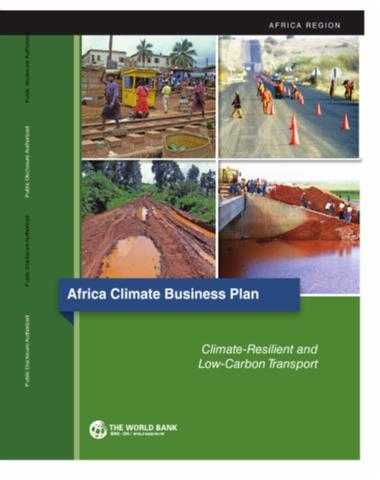The World Bank is a vital source of financial and technical assistance to developing countries around the world. We are not a bank in the ordinary sense but a unique partnership to reduce poverty and support development. The World Bank Group has two ambitious goals: End extreme poverty within a generation and boost shared prosperity.
- To end extreme poverty, the Bank's goal is to decrease the percentage of people living on less than $1.25 a day to no more than 3% by 2030.
- To promote shared prosperity, the goal is to promote income growth of the bottom 40% of the population in each country.
The World Bank Group comprises five institutions managed by their member countries.
The World Bank Group and Land: Working to protect the rights of existing land users and to help secure benefits for smallholder farmers
The World Bank (IBRD and IDA) interacts primarily with governments to increase agricultural productivity, strengthen land tenure policies and improve land governance. More than 90% of the World Bank’s agriculture portfolio focuses on the productivity and access to markets by small holder farmers. Ten percent of our projects focus on the governance of land tenure.
Similarly, investments by the International Finance Corporation (IFC), the World Bank Group’s private sector arm, including those in larger scale enterprises, overwhelmingly support smallholder farmers through improved access to finance, inputs and markets, and as direct suppliers. IFC invests in environmentally and socially sustainable private enterprises in all parts of the value chain (inputs such as irrigation and fertilizers, primary production, processing, transport and storage, traders, and risk management facilities including weather/crop insurance, warehouse financing, etc
For more information, visit the World Bank Group and land and food security (https://www.worldbank.org/en/topic/agriculture/brief/land-and-food-security1
Resources
Displaying 416 - 420 of 4907Climate-Resilient and Low-Carbon Transport in Sub-Saharan Africa
The objective of this transport component of the broader Africa Climate Business Plan (ACBP) is to begin to mainstream climate benefits into the World Bank’s transport program for Sub-Saharan Africa, the better to assist African countries in bringing their climate change efforts to scale.
Small Watershed Rehabilitation and Management in a Changing Economic and Policy Environment
China is considered one of the most seriously eroded countries in the world. The
many causes of this degradation can be divided into natural, human-induced and root causes.
The consequences of watershed degradation are severe and reach even beyond the country’s
boundaries. Addressing this issue requires a sustainable participatory and integrated watershed
management approach. The Loess Plateau Watershed Rehabilitation Projects, implemented by
the Ministry of Water Resources and co-financed by the World Bank has provided a model that
Gender Sensitive Planning, Monitoring and Evaluation in Agricultural Water Management
Agricultural water management projects
that take an inclusive, participatory gendersensitive
approach at all levels of the project
cycle help increase project effectiveness and
improve account of livelihood concerns of
women and the rural poor. Participatory
planning methods; creation of genderspecific
indicators; continuous monitoring;
and beneficiary-led impact assessment are
key features of this approach.
The Integrated Urban Development Strategy for Ploiesti Growth Pole 2014-2020
In 2012, the World Bank signed five
agreements with MRDPA for advisory services, out of which
one relates to the growth poles policy and to its
improvement for the programming period 2014-2020. This
agreement has three components: 1) an analysis of the growth
poles policy, 2) energy efficiency studies for each growth
pole; and 3) a review of the Integrated Development Plans
prepared by the growth poles for the period 2007-2013. In
Myanmar-World Bank Group Partnership
Myanmar grew at an estimated 8.5 percent
in real terms in 2014-15. Economic reforms have supported
consumer and investor confidence despite business
environment and socio-political challenges. The economic
impact of the floods that hit Myanmar from July 2015 is
still being assessed, but will likely adversely affect the
main rice crop this year. According to preliminary analysis
of census data, the areas most affected by the floods are







